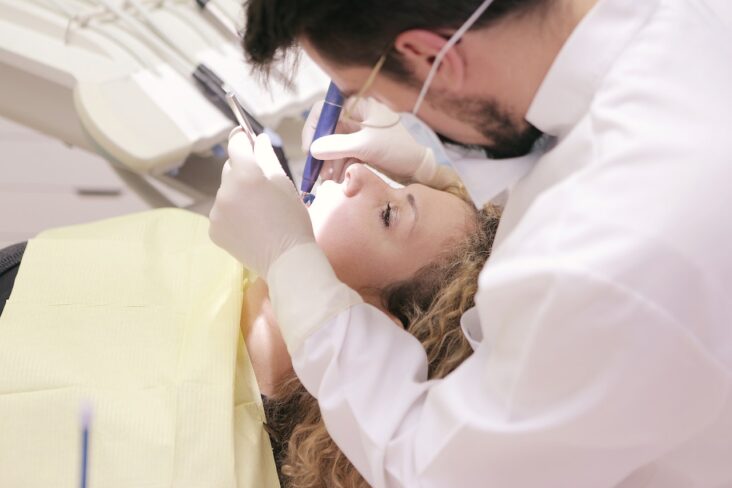Instilling proper dental care habits and ensuring the maintenance of oral health from a young age are essential for promoting lifelong dental well-being. At Watertown Dentistry, our team of compassionate and experienced dental professionals is dedicated to providing exceptional pediatric dental care. We strive to create a welcoming, comfortable, and educational environment for your child, helping them develop a positive attitude towards dentistry that will last a lifetime. In this article, we will explore the critical aspects of pediatric dentistry, including early dental checkups, preventive treatments, and guidance for parents in caring for their child’s oral health.
Our comprehensive guide will delve into essential pediatric dentistry topics, such as the recommended age for a child’s first dental visit, preventive dental treatments for children, and effective home oral care strategies for various age groups.
As parents, your role in maintaining your child’s oral health is crucial. We will provide valuable tips and insights on brushing, flossing, nutrition, and recognizing signs of potential dental issues in your child.
Embrace the importance of pediatric dentistry and provide your child with a strong foundation for lifelong oral health at Watertown Dentistry. Schedule an appointment for your child today and experience compassionate, expert dental care in a family-friendly environment.
Starting Early: The First Dental Visit
Introducing your child to the dentist early in life is crucial for setting the stage for a lifetime of good oral health. The American Academy of Pediatric Dentistry recommends scheduling the first dental visit within six months after the appearance of the first tooth, or by the child’s first birthday. This initial appointment allows the dentist to:
- Examine the child’s teeth, gums, and oral tissues for any signs of issues or potential developmental concerns.
- Discuss proper oral hygiene habits tailored for infants and toddlers, such as selecting age-appropriate toothpaste and toothbrushes.
- Address parental concerns and provide guidance on teething, thumb-sucking, and pacifier use.
- Develop a rapport with the child, helping to establish trust, comfort, and a positive attitude towards dental visits.
By starting regular dental checkups at an early age, you foster a positive relationship between your child and their dentist, ensuring consistent and attentive dental care throughout their developmental years.
Preventive Treatments: Protection against Tooth Decay
Preventive dental care plays a significant role in safeguarding your child’s oral health. Alongside regular dental checkups, pediatric dentists can provide additional preventive treatments to reduce the risk of tooth decay, such as:
- Fluoride Treatments: Topical fluoride strengthens tooth enamel, making teeth more resistant to decay. Depending on your child’s needs and risk factors, in-office fluoride treatments may be recommended at regular intervals.
- Dental Sealants: Dental sealants are a thin, protective coating applied to the chewing surfaces of molars, acting as a barrier against plaque and bacteria. Sealants can significantly reduce the risk of cavities in children with minimal to no discomfort or side effects.
Pediatric dentists may also recommend other preventive measures such as orthodontic evaluations if early signs of malocclusion (misaligned teeth or bite) are detected.
Guidance for Parents: Home Oral Care Strategies
As a parent, you play a vital role in your child’s oral health journey. Instilling proper oral care habits early on and providing support throughout their growth helps ensure a lasting, healthy smile. Consider the following tips for various age groups:
- Infant Oral Care: Even before your baby’s first tooth appears, gently clean their gums with a damp washcloth after feedings. Once the first tooth emerges, use a soft, age-appropriate toothbrush with a smear of fluoride toothpaste to clean the tooth.
- Toddler Oral Care: Continue brushing your child’s teeth using a pea-sized amount of fluoride toothpaste. Encourage your child to spit after brushing, but refrain from rinsing with water as a small amount of residual toothpaste can provide additional fluoride exposure. Around age three, you can introduce flossing when the teeth start to touch each other.
- School-aged Children: Teach your child proper brushing and flossing techniques, and supervise their oral hygiene routine until they develop the dexterity and responsibility to do it on their own. Encourage healthy eating habits, minimizing sugary snacks and acidic beverages to reduce the risk of tooth decay.
- Teens: Many teenagers consume sugary and acidic drinks, sports drinks, and energy drinks, increasing their risk for dental issues. Encourage proper brushing and flossing, regular dental visits, and the consumption of water and more tooth-friendly alternatives.
Teaching By Example: Creating a Positive Dental Environment
Children tend to emulate the behaviors and habits of their parents or caregivers. Modeling good oral hygiene practices and maintaining a positive attitude towards dental visits can significantly influence your child’s dental care habits. Some strategies for creating a positive dental environment include:
- Brush and floss together as a family, demonstrating proper techniques and reinforcing the importance of daily oral care.
- Schedule consistent dental visits for yourself, normalizing oral care as an essential part of a healthy lifestyle.
- Educate your child about dental health and the consequences of neglecting their teeth, providing age-appropriate resources or books.
Invest in Your Child’s Dental Health with Watertown Dentistry
Pediatric dentistry plays a vital role in fostering a foundation for lifelong oral health and promoting positive dental habits from an early age. The dedicated team at Watertown Dentistry is committed to providing exceptional pediatric care in a warm and welcoming environment, guiding your child towards a bright, healthy smile. Schedule an appointment today with our Watertown pediatric dentist to introduce your child to the benefits of regular dental care, design a personalized treatment plan, and receive expert guidance on maintaining a healthy, radiant smile. Together, we will ensure the best possible oral health outcomes for your family.

